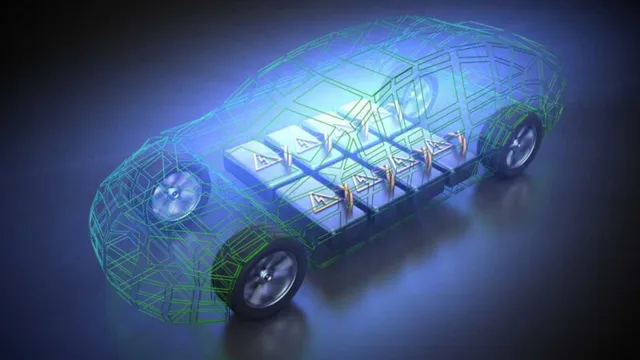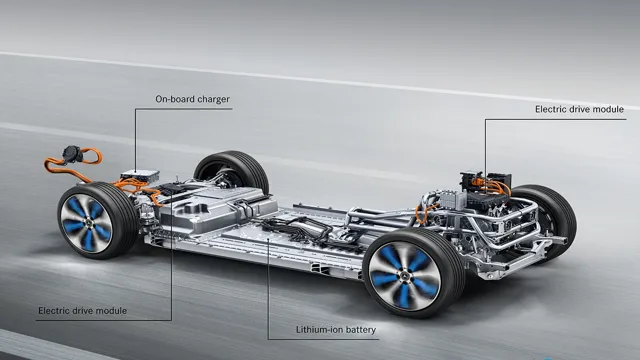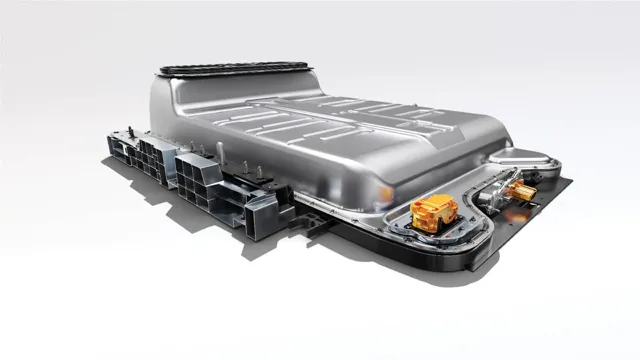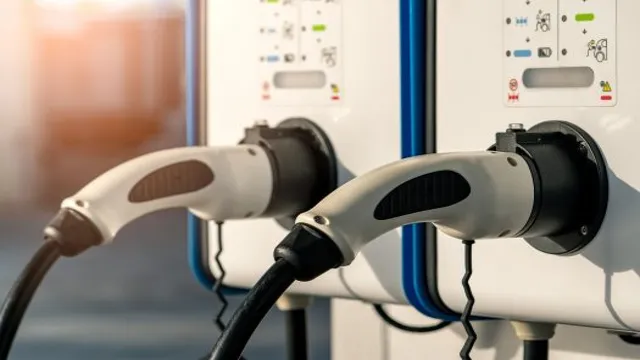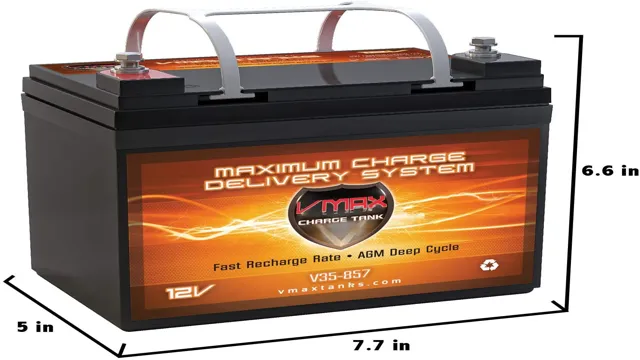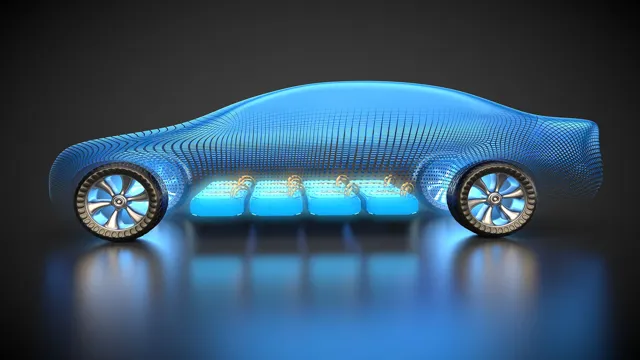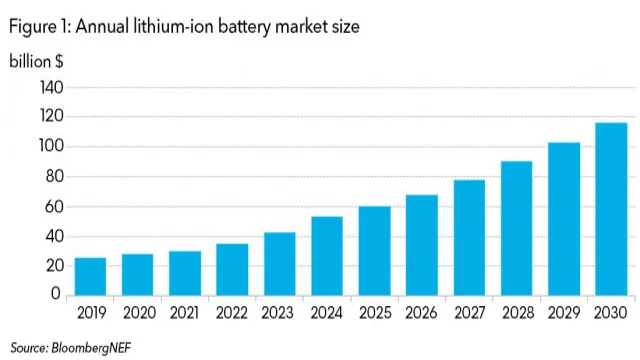The Shocking Truth About Electric Car Battery Costs: What You Need to Know
Electric cars have become more popular in recent years due to their environmentally friendly nature and cost-saving benefits. However, there’s one question that many potential buyers have: what is the cost of an electric car battery? This is a critical question because the battery is the most expensive part of an electric car, and it plays a significant role in the vehicle’s overall performance. The cost of an electric car battery is influenced by various factors, such as the battery’s size, composition, and charging capacity.
In this blog, we will discuss the ins and out of electric car batteries, break down the cost of an average electric car battery, and explore some ways to reduce the overall cost.
Overview
The cost for an electric car battery is a common concern among potential buyers. Electric car batteries are one of the most expensive parts of an electric vehicle, but the cost is decreasing as technology improves and production increases. The cost of a battery pack can vary depending on the car’s make, model, and size of the battery.
For example, a smaller electric car may have a battery pack that costs around $5,000, while a larger electric vehicle could have a battery pack that costs upwards of $20,000. It’s important to keep in mind that the cost of an electric car battery is offset by the savings in fuel costs compared to a gas-powered car over time. In addition, the cost of an electric car battery is decreasing rapidly due to advancements in technology and increased production, making them more accessible to the average consumer.
Overall, while the cost of an electric car battery may seem daunting initially, the long-term savings and environmental benefits make them a worthwhile investment.
Understanding the Cost of Electric Car Batteries
Electric car batteries have fueled much discussion and debate about the cost of owning an electric vehicle. The cost of an electric car battery depends on various factors such as the battery chemistry, the manufacturer, and the size of the battery. As the battery is the most expensive part of an electric vehicle, understanding how the cost is calculated is crucial for prospective or current owners.
For instance, the lithium-ion battery is the most commonly used and costs around $137 per kilowatt-hour (kWh) on average. However, this cost is expected to decrease as new developments in battery technology are made, and economies of scale are achieved. With the increasing demand for electric vehicles, the cost of electric car batteries is likely to decrease further in the coming years.
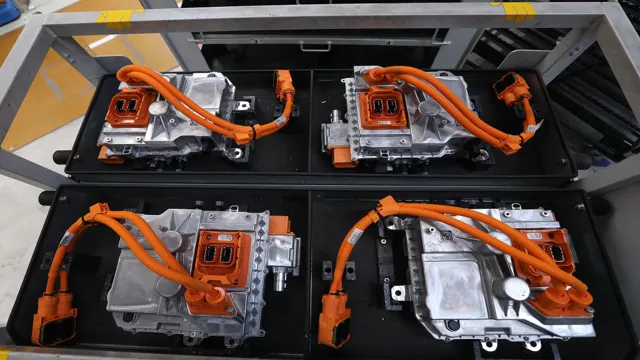
Factors That Affect the Cost of Electric Car Batteries
Electric car batteries are the backbone of electric vehicles. They store the necessary energy that propels these vehicles while reducing emissions, making them an eco-friendly alternative to traditional gas-powered cars. However, the cost of electric car batteries plays a crucial role in determining the affordability and popularity of electric vehicles.
The factors that affect the cost of these batteries are numerous, including the type of battery used, the size of the battery, the manufacturing technology involved, and the raw materials used. Lithium-ion batteries are the most commonly used batteries for electric cars; they are efficient and can hold a high amount of energy compared to other battery types. With the development of new sustainable and eco-friendly materials, the cost of manufacturing the battery is also expected to decrease.
However, electric car batteries are still relatively expensive, and automakers are focused on ways to reduce the cost of these batteries and make electric vehicles more accessible to the masses.
Average Cost of Electric Car Batteries
If you’re thinking about purchasing an electric car, one of the big concerns on your mind may be the cost for an electric car battery. The good news is that battery prices have been steadily decreasing over the years. In fact, the average cost for an electric car battery in 2020 is around $137 per kilowatt-hour (kWh).
This is a significant drop from prices just a few years ago. For example, in 2010, the average cost was around $1,000 per kWh. While there is still more progress to be made, declining battery costs are a positive development for the electric car industry and consumers looking to make the switch.
It’s also worth noting that some automakers, such as Tesla, offer battery warranties that can last for up to 8 years or 150,000 miles, which can provide extra peace of mind for electric car owners. So, while the initial cost of an electric car may be higher than a traditional gas-powered vehicle, the cost savings from lower fuel and maintenance costs, combined with decreasing battery prices, make it a worthwhile investment for many.
Popular Electric Car Models and their Battery Cost
The cost of electric car batteries varies greatly depending on the make and model of the vehicle. On average, electric car batteries cost around $7,000 to $10,000. The affordable Nissan Leaf boasts a relatively low cost of around $5,500 for a replacement battery, while the high-end Tesla Model S can cost upwards of $40,000 for a new battery.
This wide range of prices is due to the differences in battery technology and the size and capacity of the batteries. It’s important to remember that while the upfront cost of an electric car may be higher than a gasoline car, the long-term savings on fuel and maintenance can make up for it in the end. Additionally, as battery technology continues to improve, the overall cost of electric vehicles is expected to decrease, making them more accessible to the average consumer.
Predictions for the Future of Electric Car Battery Costs
The cost of electric car batteries has been a significant barrier to the widespread adoption of electric vehicles in the past. However, recent developments in technology and production have made electric car batteries more cost-effective. According to predictions, the average cost of electric car batteries will continue to decrease, making them more affordable for consumers.
In fact, it’s estimated that by 2025, the cost of electric car batteries will decrease by as much as 50%. This is due to advancements in manufacturing processes, economies of scale, and new materials. Battery innovation and the ability to recycle and reuse batteries will also contribute to the reduction in cost.
With the declining cost of batteries, the future of electric vehicles looks bright, and we can expect to see more consumers opting for eco-friendly transportation options.
Saving Money on Electric Car Batteries
The cost for an electric car battery can be quite steep, but there are ways to save money on this important component of your vehicle. One option is to consider purchasing a used battery instead of buying new. Many electric vehicle owners upgrade their batteries and are willing to sell their old ones, which can be a good deal for the budget-conscious.
Another tip is to look for discounts and incentives offered by the manufacturer or government. For example, some automakers offer rebates for replacing your battery after a certain number of years. Additionally, some states offer tax credits or other incentives to encourage the use of electric vehicles.
By taking advantage of these opportunities, you can reduce the overall cost of owning an electric car and make this eco-friendly choice more financially feasible.
Ways to Lower Electric Car Battery Costs
Lower Electric Car Battery Costs If you’re considering buying an electric car, one of the biggest expenses to consider is the cost of the battery. But there are ways to save money on electric car batteries that can make owning an EV more affordable. One option is to lease the battery instead of buying it outright.
This can significantly reduce the upfront cost of the car, and the monthly lease payment may be less than the cost of gasoline for a traditional car. Another way to save money is to choose a model with a smaller, less expensive battery. While the range may be shorter, it may be enough for your daily needs and make the vehicle more affordable.
Finally, consider purchasing a used electric vehicle. The price of used EVs has dropped significantly in recent years, and you may be able to find a great deal on a vehicle with a battery that still has plenty of life left. With these options, owning an electric car can be an affordable and eco-friendly choice.
Government Incentives for Electric Car Battery Purchases
If you’re considering buying an electric car, you may be worried about the cost of replacing the battery. However, the good news is that there are government incentives available to help you save money. In some countries, such as the United States and Canada, there are tax credits or rebates available to people who purchase electric cars.
These incentives usually cover a portion of the cost of buying an electric car, and can also include incentives for purchasing an electric car battery. There are also government-funded grants and loans available to help cover the cost of electric car battery purchases. These incentives not only save you money upfront, but can also help you save money in the long run by reducing the cost of owning an electric car.
So if you’re thinking about buying an electric car, make sure to research the incentives available in your area to help you save money on the battery purchase.
Conclusion
In conclusion, the cost for an electric car battery is not just an investment in your vehicle, but an investment in the future of our planet. As battery technology continues to advance and become more affordable, the time is now to make the switch to electric and help pave the way for a cleaner, greener tomorrow. So don’t let sticker shock scare you away from going electric – the cost may be high, but the benefits are truly priceless!”
FAQs
What is the average cost of an electric car battery?
The average cost of an electric car battery is around $5,500.
Are there any government incentives or rebates for purchasing an electric car battery?
Yes, there are various government incentives and rebates available for purchasing an electric car battery in different countries.
How long does an electric car battery usually last?
The lifespan of an electric car battery depends on several factors like its quality, usage, and maintenance. Typically, it lasts around 8-10 years.
Can an electric car battery be recycled?
Yes, an electric car battery can be recycled, and the recycling process can recover valuable metals like lithium, cobalt, and nickel for reuse.
